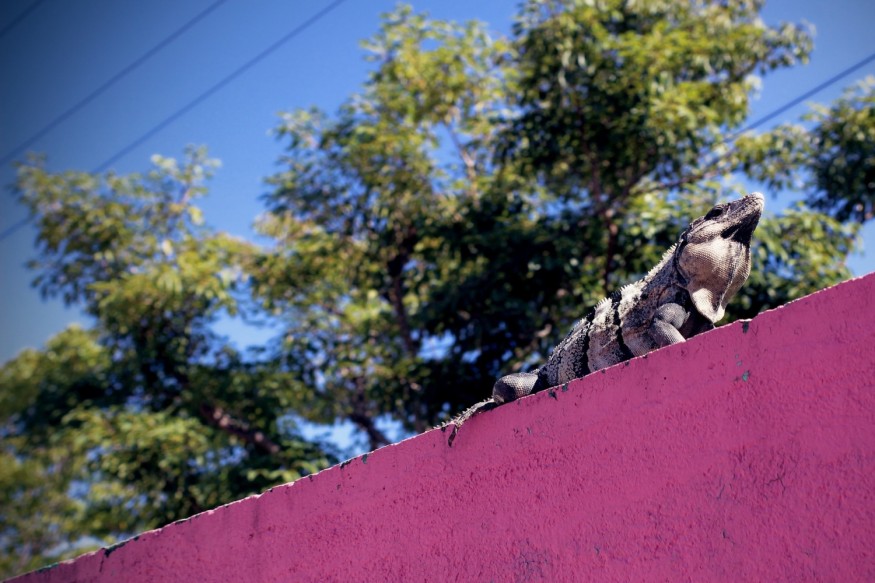
The Galápagos Conservancy and the Galápagos National Park Directorate (GNPD) declared Galápagos pink iguanas as 'critically endangered' in the island, according to their recent survey.
Preliminary results from the first-ever comprehensive census showed that there over a hundred fewer of the rosy-hued lizards on the northern slopes of Wolf volcano on Isabela Island, the largest of the Galápagos. Scientists from GNPD announced that there are just 211 Galápagos pink iguanas left in the world.
One of the most vulnerable species in Galapagos
The pink iguana (Conolophus marthae), also known as Pink Land-Iguana, Galápagos Pink Iguana, or Martha's Land-Iguana, was first recognized and declared as a completely separate species to the Galápagos Islands' land iguanas, wherein one of the "most recently described species is also one of its genetically oldest." They are native to the dry grasslands and deciduous forests of Wolf Volcano, diurnal and terrestrial in nature.
Prior to the survey, their population was calculated at around 300-350, but narrowed down to 200, confined to the slopes of Wolf Volcano on Isabela.
"In the census, 53 iguanas were located and [temporarily] captured, 94 percent of which live more than 1,500 meters [4,900 feet] above sea level," said the Galápagos National Parks (PNG), noting that their current estimate of population numbers reached 211.
The 10-day expedition also revealed that pink land iguanas are on the verge of extinction, having no juveniles found since 2014. This raised an alarming concern for scientists, suspecting that predators such as rodents and feral cats are preying on the eggs and young hatchlings.
To gain better understanding of Pink Land Iguana behaviors and threats, the survey included stationing series of camera traps near the summit of Wolf Volcano. This allows them to cover footage on days of expedition, which included a clip of a rodent that may have predated over the iguana's eggs and hatchlings.
An urgent conservation priority
GNPD Director Danny Rueda and Galápagos Conservancy Director of Conservation Washington Tapia said that saving the Pink Land Iguana has become an urgent conservation priority, especially that their species lacks juveniles in the wild and they are reaching a limited geographic range with an area of less than 10.9 km.
"Being restricted to a single site makes the species more vulnerable, considered by the International Union for Conservation of Nature (IUCN) as critically endangered and therefore so much urgent action is required to guarantee its conservation," said Tapia.
Aside from predators, volcanic eruptions and competition with the co-occurring Galápagos Land-Iguana are also serious threats to the species. The long-term viability of the species is in question, thus a need for a captive breeding program or some sort should be highly considered.
The only known population of Conolophus marthae can be found in a remote volcano inaccessible to tourism. The Galápagos Islands, famously known to host abundant unusual creatures endemic to its shores, have made many creatures evolve separately far away from other species.
Hopefully, the Galápagos pink iguanas end up with a success story after further conservation efforts
© 2025 NatureWorldNews.com All rights reserved. Do not reproduce without permission.





